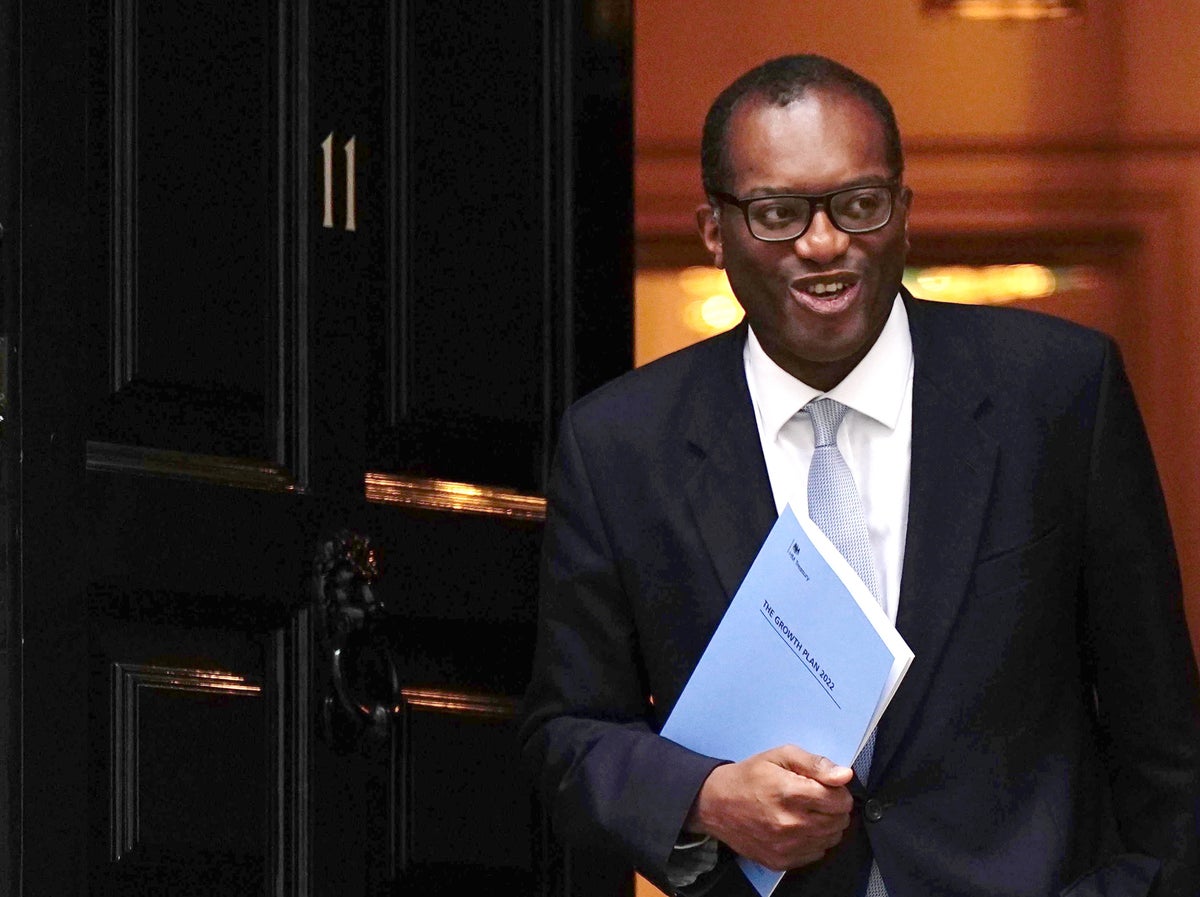
Kwasi Kwarteng has hinted at more tax cuts ahead – and ruled out any limit on government borrowing – as he appeared to shrug off criticism of his mini-Budget “gamble”.
The chancellor spooked the markets on Friday when he unveiled £45bn of tax cuts alongside massively increased borrowing.
As well as reversing the rise in national insurance and dumping a planned increase in corporation tax, in a drive to boost economic growth, he also announced he was scrapping the top rate of tax for the highest earners.
But sterling fell to its lowest level in 37 years amid concerns about borrowing and whether the plans would work.
In an interview on the BBC’s Sunday With Laura Kuenssberg programme, Mr Kwarteng suggested the government would announce more tax cuts in the near future.
He defended the changes to national insurance and a cut in the basic rate of tax to 19p, saying “and there’s more to come”.
He added: “We’ve only been here 19 days. I want to see, over the next year, people retain more of their income because I believe that it’s the British people that are going to drive this economy.”
But he refused to put a limit on government borrowing. If there was an “extreme” event, he said, “I can’t possibly say we won’t borrow to deal with that”.
Earlier, Sir Keir Starmer said a Labour government would reinstate the top income tax rate of 45 per cent. But he said he supported the plans to cut the basic rate.
He said: “I do not think that the choice to have tax cuts for those that are earning hundreds of thousands of pounds is the right choice when our economy is struggling the way it is, working people are struggling in the way they are... that is the wrong choice.”
He had come under pressure from Labour’s Greater Manchester mayor Andy Burnham, who said a future Labour government should reverse the 1p income tax cut and bring back the 45p rate.
Paul Johnson, the director of the Institute for Fiscal Studies, has warned that the chancellor has taken a big gamble. He said the mini-Budget – the biggest package of tax cuts in 50 years – had been announced “without even a semblance of an effort to make the public finance numbers add up. Instead, the plan seems to be to borrow large sums at increasingly expensive rates, put government debt on an unsustainable rising path and hope that we get better growth.
“Mr Kwarteng is not just gambling on a new strategy; he is betting the house.”







